This article was last updated on April 16, 2022
Canada: ![]() Oye! Times readers Get FREE $30 to spend on Amazon, Walmart…
Oye! Times readers Get FREE $30 to spend on Amazon, Walmart…
USA: ![]() Oye! Times readers Get FREE $30 to spend on Amazon, Walmart…
Oye! Times readers Get FREE $30 to spend on Amazon, Walmart…
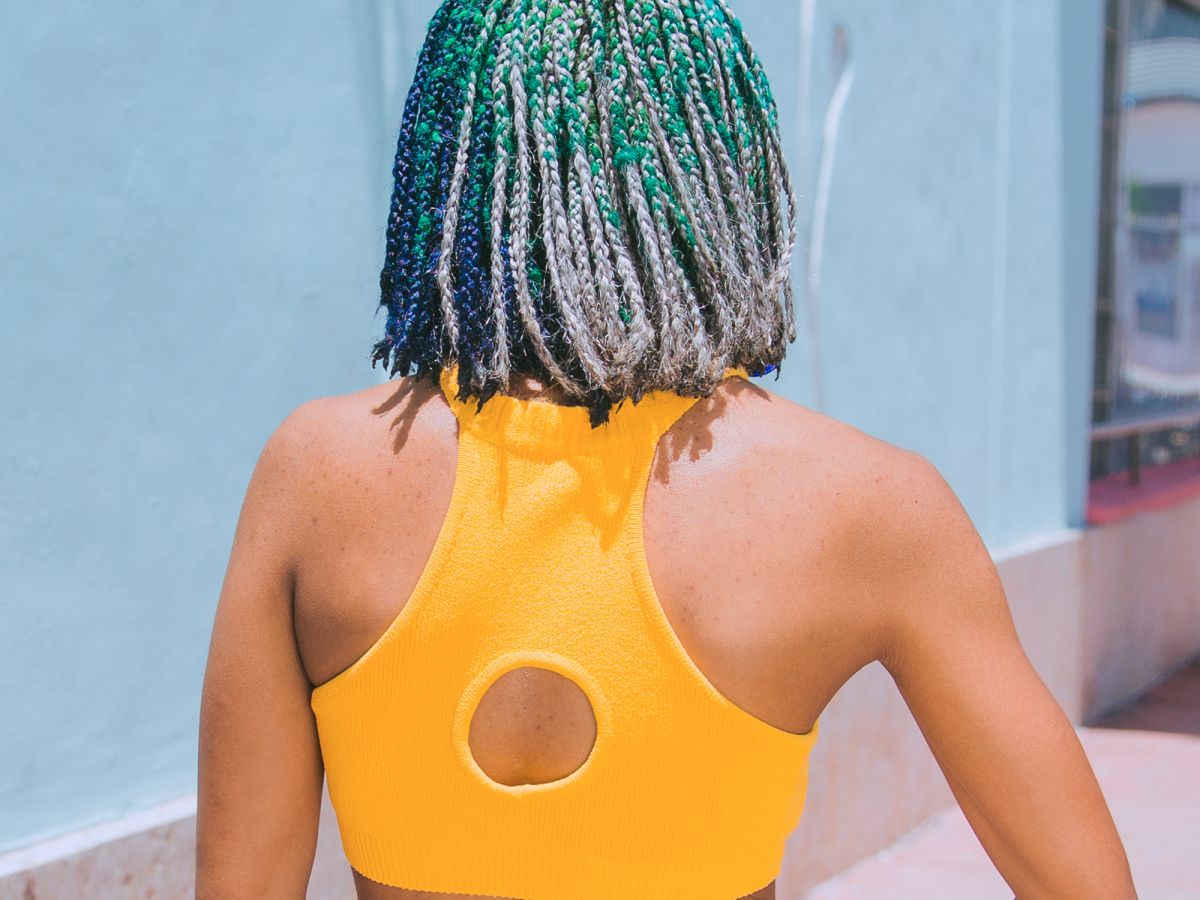
In case you somehow don’t already know: It’s never okay to reach out your hand and touch a Black woman’s hair without permission — I mean, how was that ever even a thing?
Touching is clearly not okay, but there are a number of other things that we, as non-Black people, should also consider when talking about Black women’s hair. Things like gawking at, commenting on, or cracking jokes about their latest style switch-up are equally inappropriate, and can make Black women feel singled out.
These kinds of dynamics can take place anywhere, between friends, with strangers in public spaces, or on public transportation. But things can get particularly complicated in the workplace.
Today, Black women continue to face discrimination in the workplace. Whether it’s racial bias and stereotyping, micro-aggressions from coworkers and superiors, or disproportionate instances of sexual harassment, Black women often experience a very different version of the workplace compared to their white — or even non-Black people of color — counterparts.
These dynamics are particularly pronounced when it comes to hair. Today, the natural hair movement means that more Black women than ever are embracing their natural hair textures, which often means routinely switching up their aesthetics and using protective styles, like wigs, twists, and braids. Unfortunately, this also means dealing with an influx of unwanted commentary from other people in the office.
To shed some light on some of the many challenges, Refinery29 asked ten Black women to share what it’s been like for them to have natural hair in the workplace.
These women remind us that non-Black people have a responsibility to reflect on the ways we behave and interact with our Black colleagues, and how we might often unconsciously contribute to their discomfort in our workspaces.
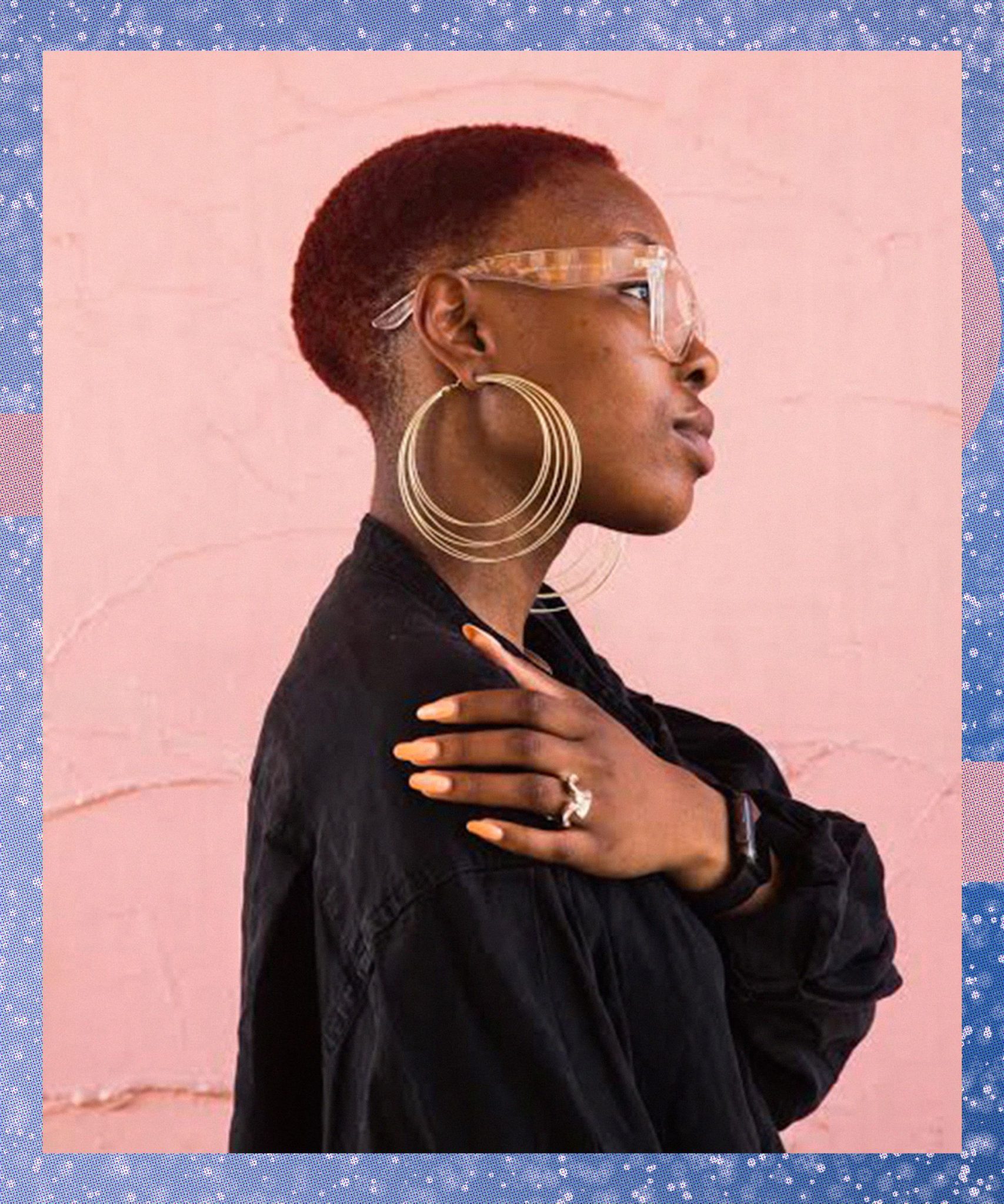
“I cut my hair in January so I started off at work with my low cut, and then I started wearing wigs. I have this one wig with bangs, and I came into the office one day and all of my coworkers were like, ‘Oh my god, you look like Nicki Minaj!’ Someone asked me ‘How does this work? You didn’t have hair yesterday, and now you have hair today.’
“They were so fixated on it and some of them tried to touch it. It’s really interesting, because sometimes I get anxiety and wonder if I should even wear a wig or just wear my low cut because I don’t want to confuse them. Once a coworker didn’t acknowledge me and said she didn’t know it was me.
“I cut my hair because I needed to be free, and I wanted to be comfortable with myself without my hair as a shield. Coming into the workplace that meaning has been stripped away; it’s not a source of liberation anymore, it’s a source of anxiety. Now I feel like I have to keep up with this appearance, or that I should have just kept my hair and kept it simple.
“Our team is diverse, and it’s mainly women, and we’re mostly all women of color, so I feel like they should understand. But it’s interesting that the disconnect comes once hair comes into play. If I could say anything to them, I would honestly just say: Please don’t touch my hair. It may not mean anything to you, but there are a lot of stories behind my hair. And I wish you would respect that.”
— Oguguam Ugwuanyi, 22, Graphic Designer in Digital Marketing, Chicago, IL

“While working in a newsroom, there was a day I decided to wear a big curly afro to work and I loved it. That exact same day another Black coworker, who normally wore straight extensions, happened to have a curly hair style, too.
“The phone rang, and a male coworker who answered the phone said it was someone on the line asking for me. When I answered, I found out the call was actually for my female coworker with the curly extensions — not me.
Once all three of us were near the phone, he stared at the both of us with the phone in his hand looking to give the phone to one of us. It was as if, all of a sudden, he couldn’t tell us apart even though we have very different features (and names). He finally said, ‘Well, the phone is for (coworker’s name). You two handle it because you all switch your hair up too much.’
My hair — with all of its coils, springs and curls — is truly an extension of who I am. Some people say ‘hair is just hair,’ but I think differently. My hair reflects my personality in many ways. Some days I wear a mohawk when I’m feeling creative, and other times when I want to be bold, I wear a huge twist-out with tons of volume. Changing our hairstyles is just one of the coolest magical powers Black women have. And yet we’ve been looked down upon for years, and our hair is always looked at as ‘wrong.’
“I wish non-Black team members at work would respect our culture and craft of hairstyles. Most importantly, I wish they would ask meaningful questions without assuming. I want them to learn about our hair and our culture without assuming or attempting to touch our hair without permission. You learn when you sincerely ask a question.”
— Victoria Davis, 26 Founder of ClassyCurlies, Indianapolis, IN

“I’ve experienced countless micro-aggressions starring my hair. Once, a white coworker touched my braids the same day I debuted them at work. It happened so quickly that I couldn’t react. I was stunned.
“Since she wasn’t American, I figured she may not have understood the sensitivity of touching a Black woman’s hair. She tried to touch it again a few weeks later when I took down the braids and had my hair in two puffs. This time, I swerved. Later on, I pulled her aside and explained that she shouldn’t touch a Black woman’s hair and that it’s a major invasion of personal space. I didn’t have the time or energy to go deeper into the problematic history of racist petting zoos.
“Another pivotal moment was during a series of job interviews. On the first round, I wore my natural hair in a bun. Before the second interview, I switched to a braided hairstyle. When I went in, I noticed that I was sitting in the waiting area far longer than my scheduled interview. The person I interviewed with the first time finally retrieved me from the waiting area almost an hour later, saying ‘Apologies! I didn’t recognize you with your new hair.’
“Hair is a big part of my self expression. I adore my natural texture: A sometimes kinky, fluffy mass of black cotton candy, or tight, coily springs erupting from my scalp. Besides wearing it out, I love experimenting with different braided styles that I design and install myself. It’s extremely empowering and allows me to express a creative side of myself, right off the top of my head — literally.
“It feels redundant to say that non-Black people shouldn’t touch our hair, or ask too many invasive questions about it, or be shocked when it changes. It others us when we are seen as something out of the ordinary. Well yes, we are amazing and fantastic, but we are still human.”
— Alisha Acquaye, 28, Freelance Writer, Brooklyn, NY
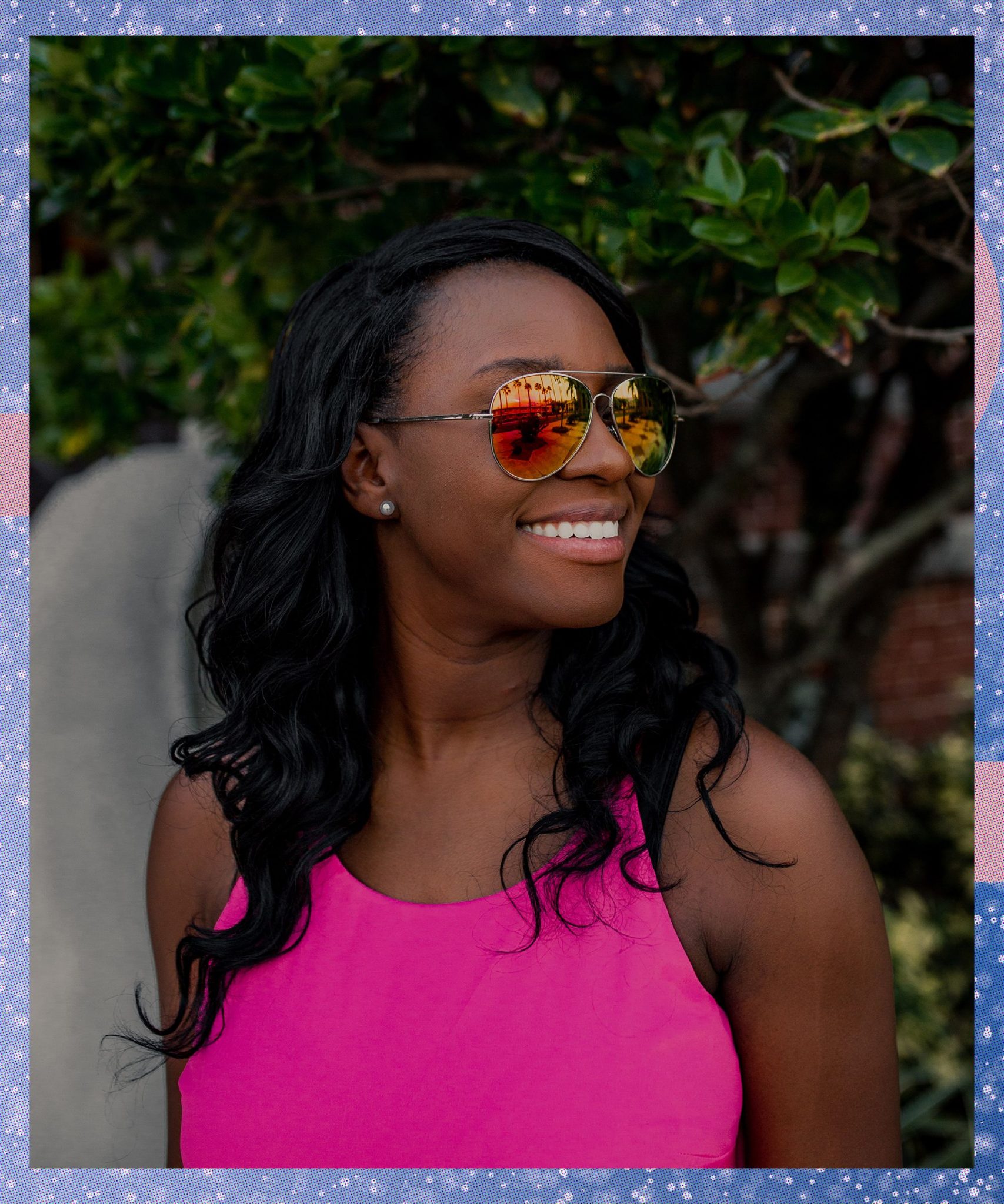
“When I was working as a public relations specialist for a national nonprofit, I felt the need to identify one look and stick with it so I wouldn’t confuse people. Typically, I wore a sleek sew-in, but after a few months I began to occasionally change my look with wigs, half-wigs, and braids.
“I didn’t mind when coworkers noticed and offered general comments like, ‘I love your hair like that!’ or ‘Wow, I like your curls.’ I’d put in effort to change my look so I expected they’d take notice.
“What I didn’t appreciate were comments like, ‘Wait, wasn’t your hair shorter last week? Did it just suddenly grow over the weekend?’ I always felt the need to have a response prepared because I anticipated ignorant comments. I even once had an older male colleague say, ‘You guys are always changing your hair,’ to which I replied, ‘Yeah, one of the cool things about being a woman is the way we get to experiment with new looks!’
“Even though I responded with playful remarks, I was steaming inside. It wasn’t fair that I had to prepare a defense every time I decided to change my hairstyle — no other group of people has to endure that. My hair is important to me because is an extension of my femininity. Different styles express various dimensions of my personality, and when one of those styles is criticized or misunderstood, it is ultimately a part of my womanhood that is challenged.
“I wish my coworkers understood that general compliments about my look are welcome, but touching my hair or remarks about its ‘otherness’ make me feel like an exhibit. Now that I work for myself, I no longer have to have those conversations when I change my hairstyle, and I can rock half-wigs, long tresses, or braids freely as I so choose.”
— Danielle Bayard Jackson, 31, Co-founder, STRIDE Media Group, Tampa, FL
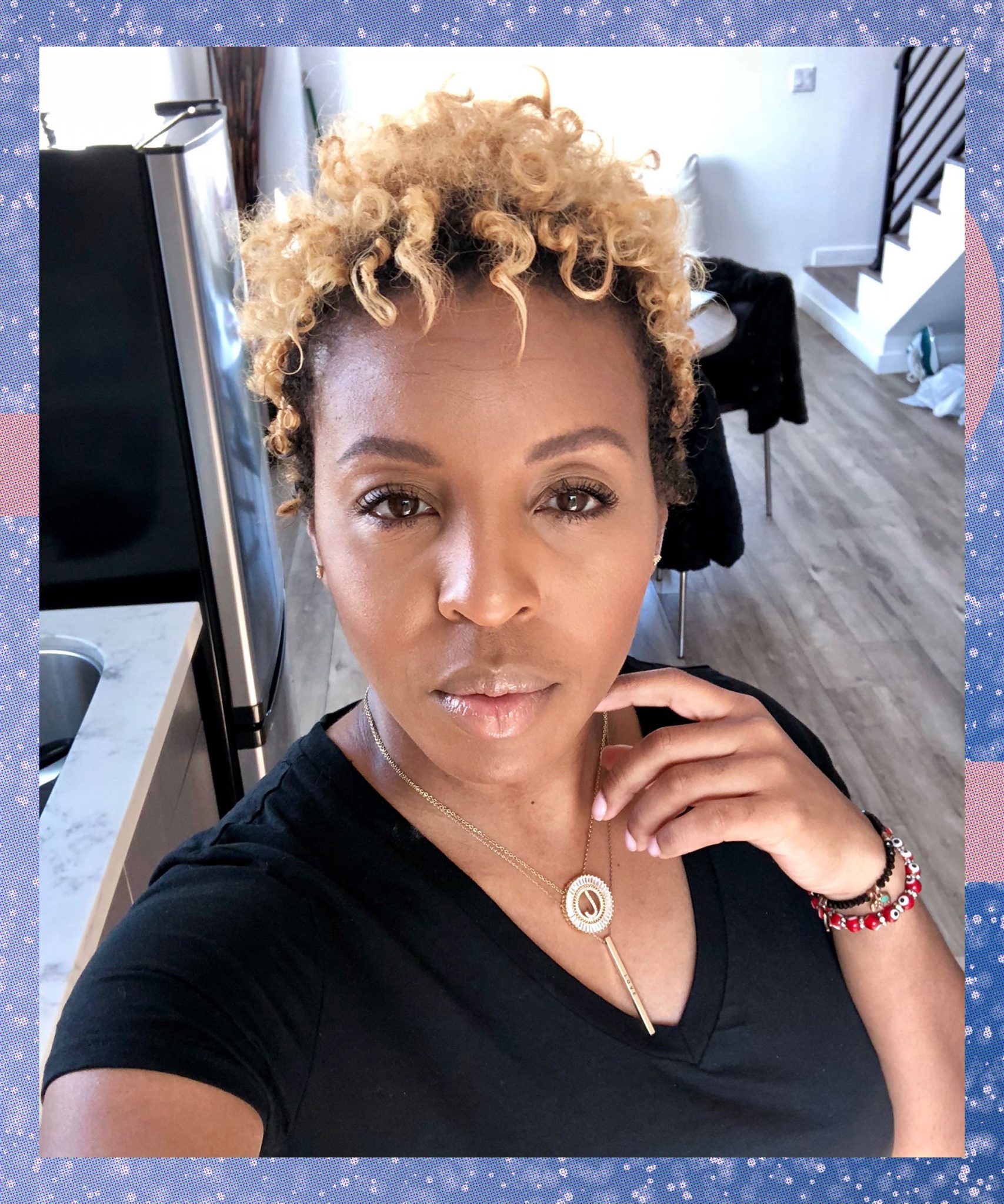
“Before starting my own business, I worked at a global investment bank. I would switch my hairstyles every two to three weeks, opting for weaves, braids, or blowouts. My coworkers were so intrigued at my changes that my white male boss would come out of his office to make a big announcement about my hair changes.
“He would loudly comment to my entire team of 15 people: ‘Guys, Jamaya has a new hairdo!’ or ask ‘How is that attached?’ He’d ask things like: ‘With so many changes, won’t your hair fall out?’ or ‘Wait, where’s your hair?’ I was so embarrassed! Luckily, I resigned from that job and, on my last day, I did my big chop! I let it all go.
“I’ve always felt that changing my hair allowed me to express myself in such a rigid environment. My hair is important to me because it’s a direct extension of my personality and brand. It signifies my strength, creativity, and freedom.
“I wish others knew not to touch my hair. Unsolicited touches to my hair make me feel uncomfortable. I want others to be respectful and not make a mockery of my hair styles. Many of my styles actually protect my hair, promoting growth and strength.”
— Jamaya Moore, 36, Makeup Artist, Baltimore, MD

“I love to get creative with my hair and switch things up often. Even if I didn’t, my kinky-coily hair doesn’t sit well in a style for too long before it tries to break free from hair pins and hair ties. As such, I probably wear my hair in two to four styles each work week.
“I noticed early in my career that this very normal activity for me was becoming a spectacle at my job. People would ooh and ah every day, and I felt that it was distracting my coworkers from my contributions to the work place.
“Once a senior colleague made a joke during a brainstorm session that if I could come up with as many ideas as I do hairstyles, we’d never go out of business. I don’t think it was malicious, but it can sometimes be embarrassing as a woman in the workplace to stand out for physical appearance. Another time, I had coworkers complain to me when I straightened my hair because it was ‘boring’ and not big and fun like my curls.
“I consider my hair and its versatility to be a part of my beauty. It’s one of the avenues which I use to express myself, and while I don’t mind people appreciating the effort I put into styling my hair, I can tell when the attention doesn’t come from a sincere place. Sometimes my hair will be in braids, sometimes a huge twist-out, and sometimes it will be straight.
“I wish non-Black colleagues would take the approach of not saying anything unless they have something nice and genuine to say and get used to the switch-up game sooner, saving the oohs and aahs for when I really came to show out with my hair.”
— Alicia, 27, Healthcare Program Manager, Brooklyn, NY

“Before starting my consulting business, I worked in the nonprofit sector. There was always one particular employee that constantly would approach me with micro-aggressive commentary about my hairstyle or not being able to recognize me if I changed my hairstyle slightly.
“One time after she attempted to pet me, she went on to tell me how much she loves to touch the hair of mixed-race people because they have ‘the best hair.’ It was offensive on so many levels and even though I was outnumbered in my office, I stood my ground and told her all grades of hair are beautiful.
“Later, I also sent her a cartoon showing an animated sketch on how Black people feel when their non-Black clients or coworkers try to touch their hair. As Black women, 0ur hair is our main accessory, it tells a story and gives us our armor to go out into the world. For me, my hair gives me confidence, strength, and pride.
I am a Black woman but grew up in predominately Caucasian institutions, so I’ve come to use my hair as a way to educate people. We aren’t animals to pet, but we have to be open to questions so that we can provide new insight to our unknowing or oblivious coworkers.”
— Brittney Bogues, 31, Entrepreneur & Co-Founder of Bogues Consulting Group, Charlotte, NC

“Having been the only Black woman in all-white offices, I’ve had plenty of awkward experiences with my hair, to the point that I often didn’t want to change my hair to avoid welcoming a petting zoo. I remember considering the comments I would get from my coworkers as I sat in the salon chair, and cringing as I walked into the office on the days I debuted my new hairstyle.
“To me, my hair has always been a form of self-expression. Sometimes, I want it long, sometimes I want it short, sometimes I want it black, sometimes I want braids, sometimes I want to wear my natural hair, sometimes I want a new color. But I’ve never felt so constricted until I entered the workplace.
“Now that I work for myself as a career strategist, I’m free from those encounters. But, I still wish that other people understood that changing my hair is simply like changing my earrings. It’s not a defining moment. It’s not your opportunity to ask a hundred questions about the hair culture of Black women. It doesn’t give you permission to touch my hair, and it does make me feel awkward and uncomfortable.
“As a career strategist, I often get lots of nervous comments from my Black female clients when it comes to how they should wear their hair for job interviews, and although I understand their concerns, it’s always interesting to me because it never comes up for my white female clients. I wish more people recognized that Black women’s decision to wear our hair in whatever way doesn’t diminish our expertise, value, or work ethic.”
— Adunola Adeshola, 25, Millennial Career Strategist, Houston, TX
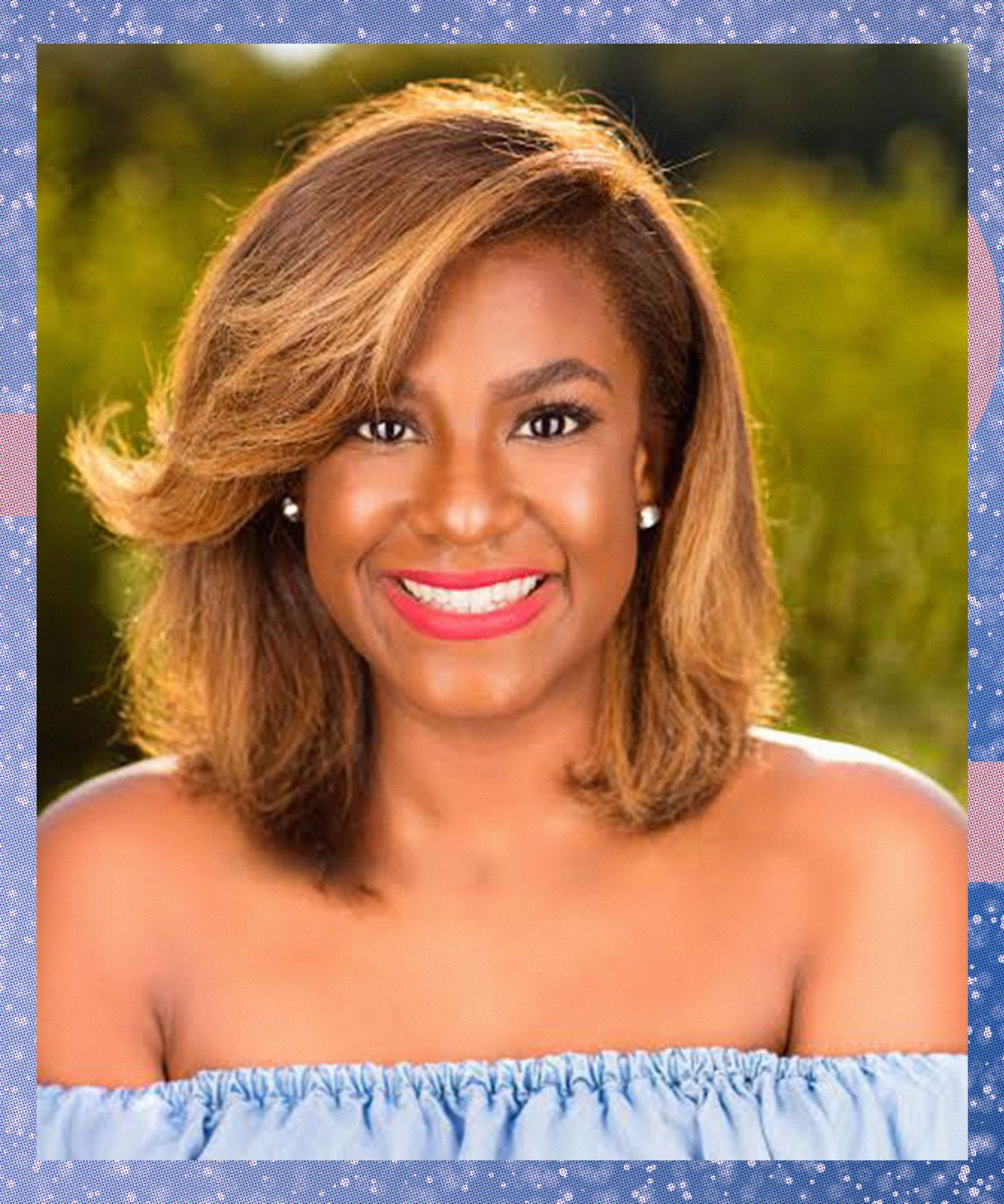
“Throughout my whole career, I have been known to switch up my hairstyles frequently. I’ve gone from black pixie cuts to platinum buzz cuts to 22-inch cascading blonde waves to a massive natural ‘fro to everything in between. And, while this is not uncommon for Black women, it’s become a major talking point in professional circles with white people I’ve worked with over the years. In fact, at one company, they had annual superlatives and named me ‘Most Likely to Change My Hair.’ Needless to say, it was fairly embarrassing.
“I’ve had people ask to touch my hair (as recently as 2017) and ask ‘is that you?’ I’ve also had other coworkers walk right by me after working with me for years because I did something as simple as blow my hair out.
“My hair has always been a creative outlet for me; the ability to transform and experiment with so many colors and styles is part of what makes Black women’s hair beautiful. It’s also very spiritual. I have hair like my mother who passed away from cancer in 1999; her hair was so thick, beautiful, and she also wore it in many styles like a crown. My hair is highly personal, and I care for it the way I do anything else that’s precious to me.
“I wish non-Black people understood that my Blackness and my hair is not an excuse to disregard my humanity. When people gawk, touch, and have group discussions about my hair in my presence, they are reducing me to a display or sideshow of sorts. It’s important to remember that you should admire someone’s crown and the history behind it respectfully — or even with reverence — without reducing them to your personal entertainment.”
— Kamari Guthrie, 32, Public Relations Executive, Washington D.C.
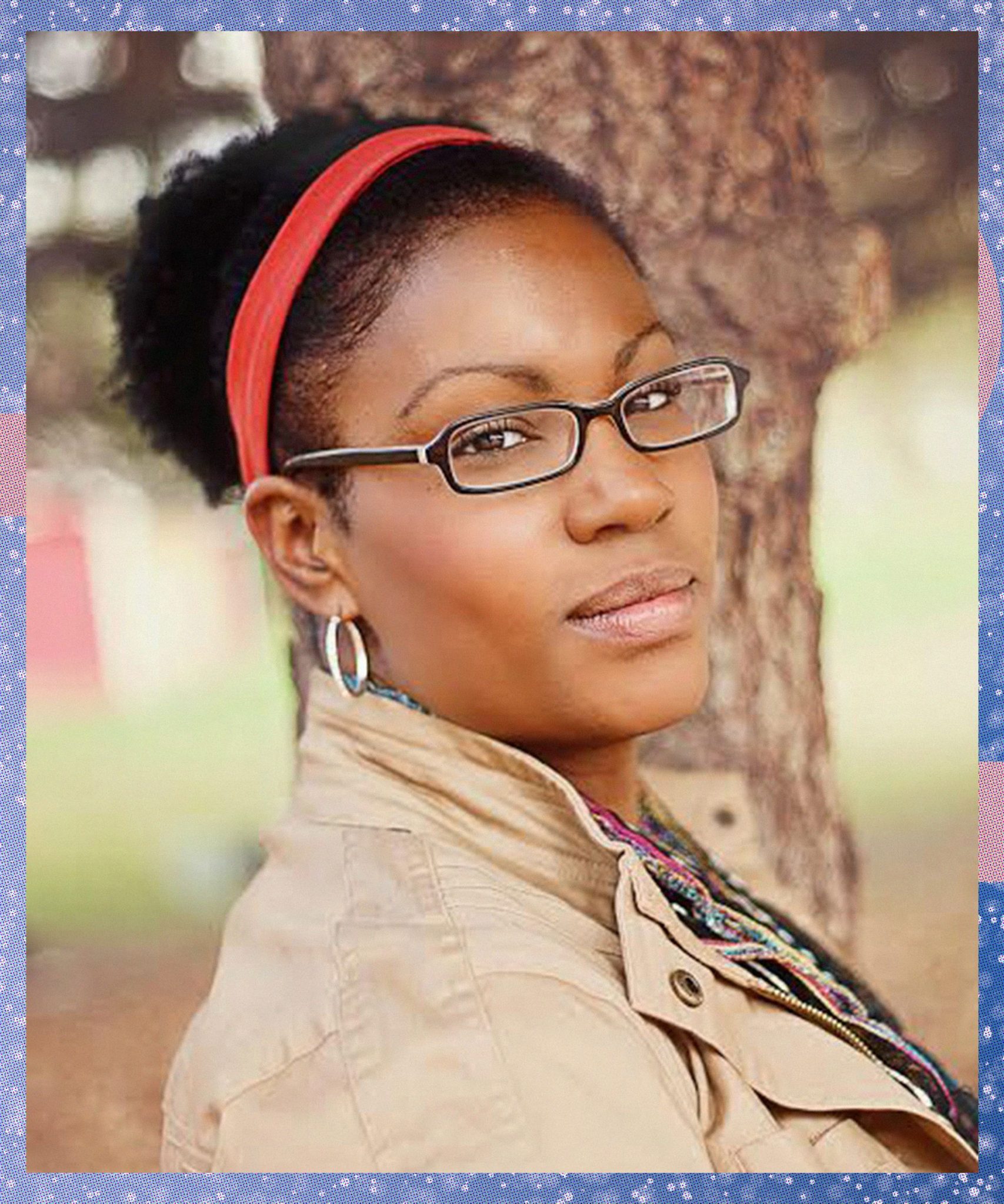
“‘Sophisticated.’ That’s how the COO of the corporation I worked for described my hair. Over the weekend, I’d taken down my kinky twist, and had my hair trimmed and straightened. I knew the change would spark yet another unsolicited response — but this one irritated me, and I didn’t hide my resentment.
“Two weeks earlier, after first installing the kinky twist, my supervisor made a big deal of my hair change. She’d ask other coworkers, ‘Don’t you just love Ayana’s hair?’ prompting more conversations I didn’t ask to be a part of. She invited the COO to my office door, explaining how long it had taken for me to braid my hair, and how ‘cool’ it was. He responded, ‘Huh, interesting.’
“Here’s the thing: I didn’t ask his opinion. I didn’t care what he thought, and I was pissed that my supervisor had, once again, made my hair the topic of corporate office conversation. She may have meant it to be an exercise in inclusion – I was the only Black woman in our corporate office – but it felt like an exercise in ‘othering.’
“When a white woman changes her hairstyle, her coworkers compliment her, or don’t, and they move on. Not so for Black women. A compliment is fine, it’s appreciated. But it always seemed to go several steps further.
“I decided to go natural ten years ago. I’d been working at a school where the staff and students were predominately Black, and I felt proud to see all of the natural styles – even prouder when I cut all my own hair off, sporting a tiny Afro for a year or so. Corporate America is not as welcoming.
“My hair is beautiful, it’s strong, it’s versatile. It’s me. I don’t want, nor do I need, non-Black commentary on what’s appropriate, ‘sophisticated,’ or ‘cool.’ A simple, ‘I like your hair today’ is great. But silence works, too. I’ve since left the corporate world and now I wear an Afro-puff almost every day.”
— Ayana King, 39, Owner of Maximum Communications, Wyandotte, Michigan
Click HERE to read more.
You can publish this article on your website as long as you provide a link back to this page.

Wow, hairstyles are awesome. Thanks for sharing.